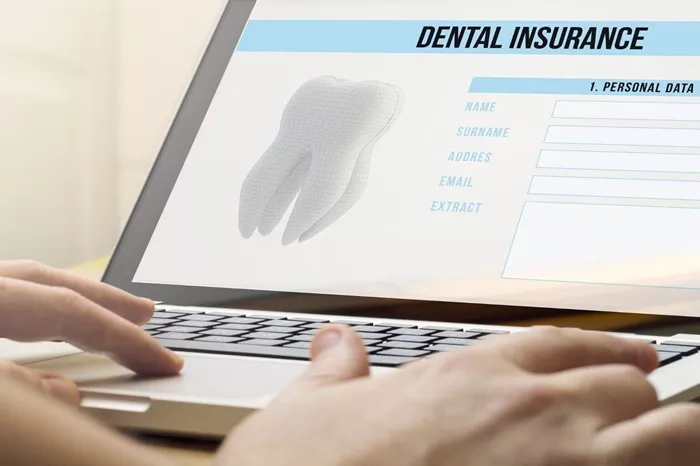Car insurance is a necessary expense for vehicle owners, but there may come a time when you consider canceling your policy. Whether it’s because you sold your car, are switching to a different insurer, or for some other reason, understanding the ins and outs of canceling car insurance is crucial. In general, you can cancel car insurance anytime, but there are several factors and procedures to be aware of.
Legal Aspects of Canceling Car Insurance
State Laws and Requirements
Each state in the United States has its own laws regarding car insurance and policy cancellation. In most states, having car insurance is mandatory while operating a vehicle on public roads. When you cancel your insurance, you need to ensure that you are not violating any state – specific regulations. For example, in some states, you may be required to notify the Department of Motor Vehicles (DMV) when you cancel your insurance. Failure to do so could result in penalties such as fines, license suspension, or vehicle registration revocation. In California, if you cancel your insurance and do not have a valid exemption, the DMV may be notified by the insurance company, and you could face consequences.
Contractual Obligations
Your car insurance policy is a contract between you and the insurance company. The terms of this contract usually outline the conditions under which you can cancel the policy. Most policies have a specific notice period that you are required to give to the insurance company before cancellation. This notice period can range from a few days to a month, depending on the insurer and the state. For instance, some insurance companies may require 10 – 15 days’ written notice of cancellation. Additionally, if you are in the middle of a policy term (e.g., a 6 – month or 12 – month policy), canceling may have financial implications, such as forfeiting any prepaid premiums or incurring a cancellation fee.
Reasons for Canceling Car Insurance
Selling or No Longer Owning a Vehicle
One of the most common reasons for canceling car insurance is selling your car. Once you no longer own the vehicle, there is no need for insurance coverage on it. Similarly, if your car has been totaled in an accident and you do not plan to replace it, canceling the insurance is a logical step. In such cases, it’s important to cancel the insurance as soon as possible to avoid paying unnecessary premiums. For example, if you sell your car on the 15th of the month and continue to pay insurance for the full month, you could be wasting money.
Switching Insurance Companies
Another common reason for cancellation is to switch to a different insurance company. You may find a better deal in terms of premium rates, coverage options, or customer service with another insurer. Before canceling your current policy, it’s crucial to first obtain a new policy from the new insurer. This ensures that you do not have a lapse in coverage, which can be costly and may even be illegal in some states. For example, if you are unhappy with your current insurer’s claims – handling process and have found a more responsive company, you can switch, but only after securing the new policy.
Financial Constraints
In some cases, financial difficulties may prompt you to consider canceling car insurance. However, this should be a last – resort option, as driving without insurance is illegal in most areas. If you are facing financial hardships, it may be better to explore other options with your current insurer, such as adjusting your coverage levels or payment schedule. For example, you could switch from a comprehensive and collision policy to a liability – only policy, which is generally less expensive. If these options do not work, and you must cancel, make sure you are not planning to drive the vehicle until you can afford to reinstate the insurance.
The Process of Canceling Car Insurance
Contacting the Insurance Company
The first step in canceling your car insurance is to contact your insurance company. You can usually do this by phone, email, or through the insurer’s online portal. When you contact them, be prepared to provide your policy number, personal information, and the reason for cancellation. For example, if you are canceling because you sold your car, let the agent know the date of the sale. Some insurance companies may require you to submit a written cancellation request, so be sure to follow their specific procedures.
Returning the Insurance Documents
In some cases, the insurance company may ask you to return any physical insurance documents, such as your proof – of – insurance card or policy booklet. This helps them to properly close out your account. If you have lost these documents, inform the insurance company, and they will guide you on the next steps. For example, they may ask you to sign a statement acknowledging the loss of the documents.
Settlement of Premiums
If you have prepaid your insurance premiums for a certain period, the insurance company will typically refund the unused portion. However, they may deduct a cancellation fee, if applicable, and any outstanding balances you owe. For example, if you prepaid for a 6 – month policy but cancel after 2 months, you should receive a refund for the remaining 4 months’ worth of premiums, minus any fees. The refund process may take some time, usually between 7 – 14 business days, depending on the insurance company.
Consequences of Canceling Car Insurance
Gap in Coverage
One of the major risks of canceling car insurance is having a gap in coverage. If you plan to continue driving and cancel your insurance without immediately obtaining a new policy, you are driving uninsured. In case of an accident, you will be personally liable for all damages and injuries, which can be financially devastating. For example, if you cause an accident while uninsured and the other party sustains serious injuries, you could be sued for medical bills, lost wages, and pain and suffering, potentially leading to bankruptcy.
Impact on Future Insurance Rates
Canceling your car insurance, especially if it results in a lapse in coverage, can also impact your future insurance rates. Insurance companies view drivers with a history of lapses in coverage as higher – risk. When you apply for new insurance, the insurer may charge you a higher premium to account for this increased risk. For example, a driver who had a 30 – day lapse in coverage may see their new insurance premium increase by 20 – 30% compared to what they would have paid without the lapse.
Special Considerations in Canceling Car Insurance
Leased or Financed Vehicles
If your vehicle is leased or financed, canceling your car insurance can be more complicated. The leasing company or lender has a financial interest in the vehicle and will require you to maintain insurance coverage throughout the lease or loan term. Canceling the insurance without the consent of the lessor or lender is a violation of the lease or loan agreement. They may even purchase insurance on your behalf, known as “forced – placed insurance,” which is usually more expensive than a policy you would choose on your own. For example, if you lease a car and cancel the insurance, the leasing company may charge you a much higher premium for the forced – placed insurance, and you may also face penalties for breaching the lease agreement.
Multiple – Vehicle Policies
If you have a multiple – vehicle policy and are canceling insurance on one of the vehicles, the process may be different. You need to inform the insurance company which vehicle you are removing from the policy. They will then adjust your premium accordingly. In some cases, you may be eligible for a discount on the remaining vehicles’ insurance, as the overall risk to the insurer has decreased. For example, if you had a policy covering two cars and cancel the insurance on one, the insurance company may offer a small discount on the premium for the remaining vehicle.
Case Studies: Canceling Car Insurance
Case 1: Selling a Vehicle
Mr. Johnson sold his car to a private buyer. He immediately contacted his insurance company to cancel the insurance. He provided the date of the sale and his policy details. The insurance company processed the cancellation and refunded him the unused portion of his prepaid premium, minus a small cancellation fee. Since Mr. Johnson did not plan to purchase a new vehicle immediately, he was careful not to drive any vehicle until he could obtain new insurance if needed.
Case 2: Switching Insurance Companies
Ms. Brown was unhappy with her current insurance company’s high premiums and poor customer service. She shopped around and found a new insurer that offered a better rate and more comprehensive coverage. Before canceling her current policy, she obtained a new policy from the new insurer, effective the day after her current policy cancellation. She then notified her current insurance company of the cancellation, citing the switch to a new provider as the reason. The current insurer processed the cancellation and refunded her the remaining premium, and Ms. Brown smoothly transitioned to the new insurance company without any lapse in coverage.
Case 3: Financial Hardship
Mr. Smith was facing financial difficulties and considered canceling his car insurance. However, he first contacted his insurance company to discuss his options. The insurer suggested that he switch to a liability – only policy, which would significantly reduce his premium. Mr. Smith agreed to this option, and the insurer adjusted his policy accordingly. This way, Mr. Smith was able to maintain insurance coverage, avoid the risks associated with driving uninsured, and still manage his finances more effectively.
Conclusion
In conclusion, while you can generally cancel car insurance anytime, it’s a decision that should be made with careful consideration. You need to be aware of the legal requirements, contractual obligations, and potential consequences of cancellation. Whether you are selling your car, switching insurers, or facing financial constraints, understanding the process and implications of canceling car insurance is essential. By following the proper procedures and making informed decisions, you can ensure that you do not expose yourself to unnecessary risks or financial hardships. Always remember that driving without insurance is illegal in most states and can have severe consequences, so if you plan to continue driving, securing alternative insurance coverage should be a priority.
Related topic:
What Happens If Your Car Insurance Cancels?



















